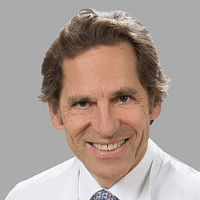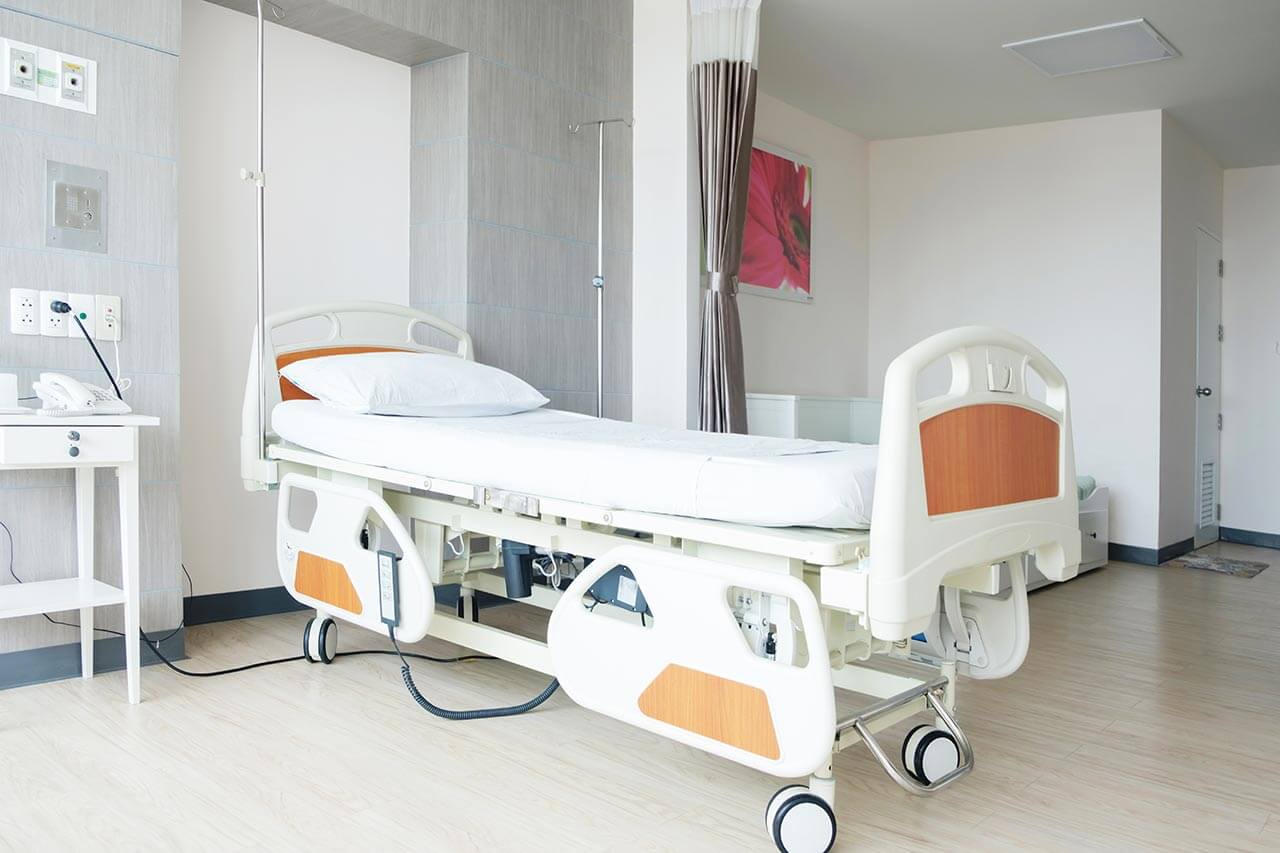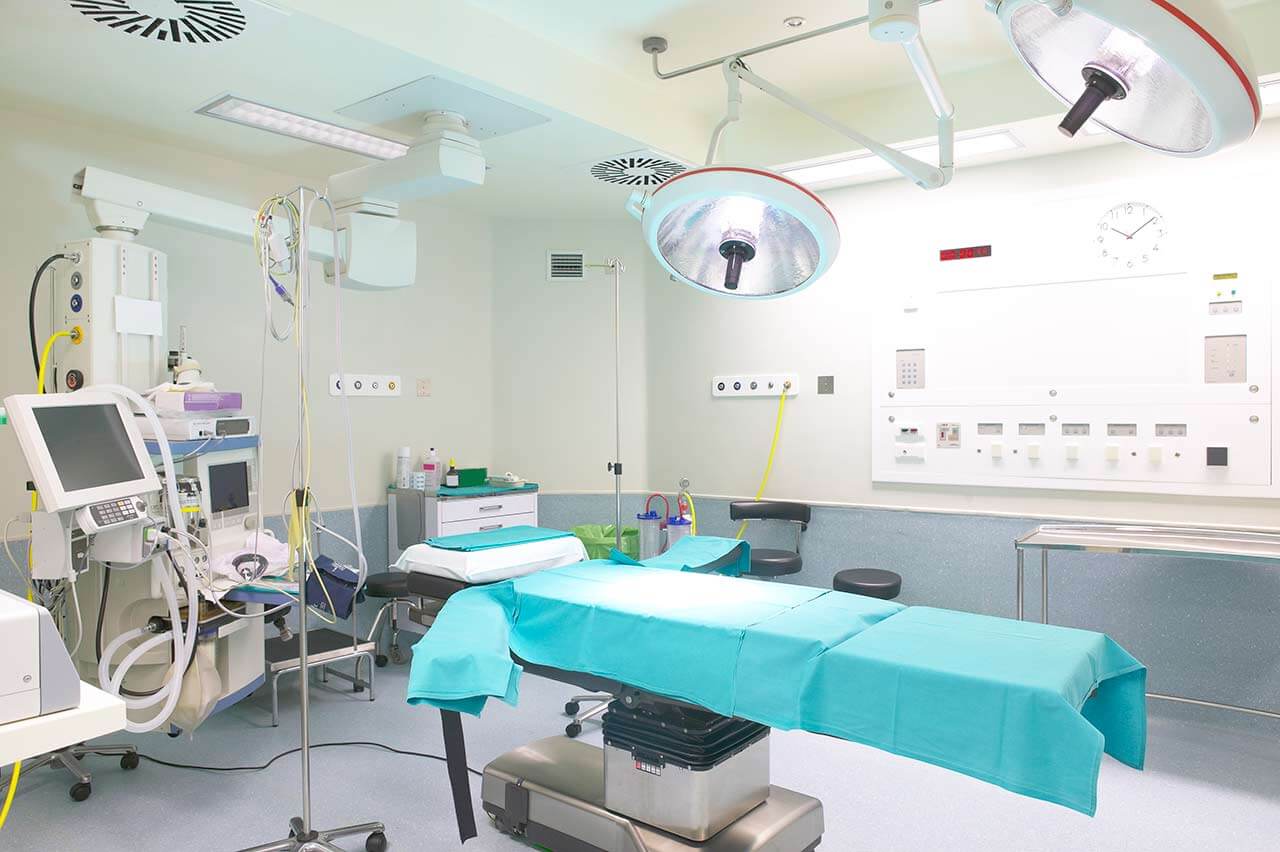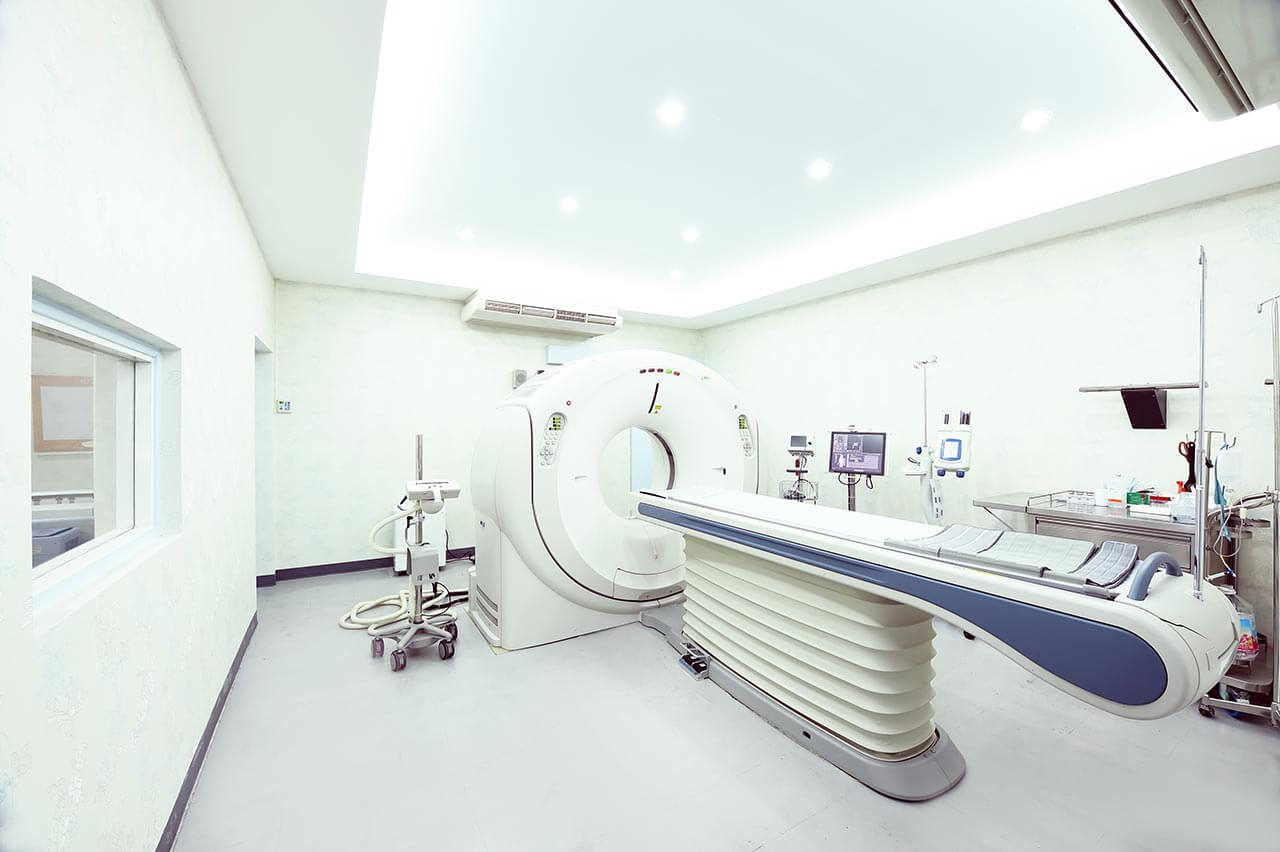
About the Department of Adult and Pediatric Urology, Andrology at St. Antonius Hospital Eschweiler
According to the famous Focus magazine, the Department of Adult and Pediatric Urology, Andrology at the St. Antonius Hospital Eschweiler ranks among the best German medical facilities specializing in prostate cancer treatment!
The department's urologists carry out modern diagnostics and treatment of all congenital and acquired diseases of the genitourinary tract, as well as of male genital organs. The department is certified as a Prostate Cancer Center and offers highly effective treatment of this pathology using the latest medical advances. The department's specialists also have unique experience in the treatment of benign and malignant tumors of the kidneys and bladder. In the field of pediatric urology, special attention is paid to the correction of congenital malformations of the genitourinary tract in young patients. The department's range of services is complemented by the diagnostics and treatment of male infertility, testosterone deficiency syndrome and erectile dysfunction. The medical facility enjoys an excellent reputation in its area of expertise throughout Germany. The doctors working in the department take care of both high quality of medical care and the maximum comfort of the patient during treatment, surrounding him with care and devoting enough time to personal communication. The department is headed by Prof. Dr. med. Joachim Steffens.
The department's medical team is proud of its achievements in the treatment of prostate cancer, which is the most common urological disorder in men. In 2007, the department was one of the first in Germany to receive a certificate from the German Cancer Society, confirming its exceptional competence in the field of prostate cancer therapy. Cancer treatment is a complex clinical task and requires the involvement of various specialists. Therefore, urologists work closely with oncologists, radiologists, radiation therapists and other specialists. After the initial consultation and studying the patient's medical history, the attending physician appoints a set of diagnostic studies to assess the condition of the prostate gland. The very first diagnostic examinations are a PSA test, digital rectal examination of the prostate and transrectal ultrasound. The following diagnostic examinations include imaging studies (CT, MRI) and biopsy. Should prostate cancer be confirmed, the department's specialists develop an optimal treatment regimen. In most cases, surgical resection of the tumor is the basis of therapy. In advanced stages of cancer, doctors often perform radical prostatectomy, which involves the removal of not only the neoplasm, but also of the entire prostate. Nevertheless, doctors always strive to choose the most sparing complex of therapeutic measures that will allow them to achieve a good result, but at the same time do without radical measures. The surgical treatment is complemented by chemotherapy, radiation therapy, including low dose-rate and high dose-rate brachytherapy, hormonal therapy and maintenance therapy. After completing the basic course of treatment, the patient can undergo a rehabilitation program to restore urinary function and improve his general health.
The treatment of bladder, kidney and testicular cancers is also within the competence of the department's doctors. As in the case of prostate cancer, the treatment tactics are developed jointly by the specialists in related medical fields, due to which all important clinical aspects are taken into account. To successfully treat these oncological diseases, the patient needs an operation to remove the tumor. The first-line surgical treatment is an organ-sparing operation, which involves the resection of a malignant neoplasm. If the cancer is at an advanced stage, radical surgery with the removal of a part or all of the organ is often required. The surgical treatment is always complemented by such conservative methods as chemotherapy, radiation therapy, hormonal therapy, etc.
In the field of andrology, the treatment of male infertility, testosterone deficiency syndrome and erectile dysfunction is of particular interest. The patients with erectile dysfunction undergo comprehensive diagnostics and conservative treatment. Should infertility be suspected, andrologists will study the patient's medical history, conduct a clinical examination, ultrasound examinations, ejaculate examination and assess sperm quality, endocrine profile. Men with infertility receive drug treatment. In complex clinical cases, doctors perform surgical sperm collection for subsequent artificial insemination (testicular sperm extraction, including microsurgical one, and microsurgical epididymal sperm aspiration). If the patient suffers from testosterone deficiency syndrome, hormonal imbalance will be normalized using hormone replacement therapy.
An integral part of the clinical practice of the medical facility is both conservative and surgical treatment of urological diseases in children. The department mostly performs corrective and reconstructive surgery for congenital malformations, for example, hypospadias, cryptorchidism, urethral stenosis, vesicoureteral reflux. Many children are admitted to the department with urinary incontinence and recurrent urinary tract infections. These diseases are treated in young patients with conservative methods. Urinary incontinence is successfully treated using laser acupuncture. The therapeutic procedure is absolutely painless and does not cause any side effects.
The department's range of medical services includes:
- Diagnostics and treatment of prostate cancer
- Surgical treatment
- Nerve-sparing radical prostatectomy
- Radical extended prostatectomy in case of advanced stages of cancer
- Radical prostatectomy for cancer progression after radiation therapy
- Transurethral resection of the prostate
- Conservative treatment
- Chemotherapy
- Radiation therapy, including low dose-rate and high dose-rate brachytherapy (a radiation source is placed directly into the pathological focus)
- Hormonal therapy
- Maintenance therapy
- Surgical treatment
- Diagnostics and treatment of bladder cancer
- Surgical treatment
- Transurethral resection of bladder tumor
- Nerve-sparing radical cystectomy
- Reconstructive surgery to form a new bladder after its resection (for example, from ileal tissue)
- Conservative treatment
- Laser ablation of tumors in the upper urinary tract
- Chemotherapy
- Radiation therapy
- Maintenance therapy
- Surgical treatment
- Diagnostics and treatment of kidney cancer
- Surgical treatment
- Open and laparoscopic radical nephrectomy
- Radical nephroureterectomy
- Organ-preserving surgery for kidney tumor resection
- Conservative treatment
- Chemotherapy
- Radiation therapy
- Maintenance therapy
- Surgical treatment
- Diagnostics and treatment of testicular cancer
- Surgical treatment
- Radical testicular removal surgery
- Organ-preserving surgery for testicular tumor resection
- Retroperitoneal (post-chemotherapeutic) nerve-sparing lymphadenectomy
- Conservative treatment
- Chemotherapy
- Radiation therapy
- Maintenance therapy
- Surgical treatment
- Diagnostics and treatment of kidney stone disease
- Flexible and rigid ureterorenoscopy
- Percutaneous nephrolitholapaxy with pneumatic, electrohydraulic, or laser lithotripsy
- Extracorporeal shock wave lithotripsy
- Diagnostics and treatment of urinary incontinence in men and women, pelvic organ prolapse in women
- Surgical treatment
- Reconstructive surgery (for example, Burch procedure, sacrocolpopexy), uterine-sparing pelvic floor reconstruction
- Minimally invasive and laparoscopic procedures (for example, laparoscopic supracervical hysterectomy, total laparoscopic hysterectomy, laparoscopic rectopexy)
- TOT and TVT sling procedures
- Filler and botulinum toxin injections
- Bladder stimulator implantation
- Surgical methods of urine diversion (temporary and lifelong)
- Conservative treatment
- Drug therapy (for example, anticholinergic drugs, hormonal drugs)
- Therapeutic exercises to strengthen the pelvic floor muscles, biofeedback, electrical stimulation
- Pessary treatment
- Radiofrequency therapy
- Surgical treatment
- Diagnostics and treatment of andrological diseases
- Surgical treatment
- Testicular sperm extraction, including microsurgical one, and microsurgical epididymal sperm aspiration in case of infertility
- Conservative treatment
- Drug treatment for for erectile dysfunction
- Replacement therapy for testosterone deficiency syndrome
- Drug treatment for male infertility
- Surgical treatment
- Diagnostics and treatment of urological diseases in children
- Surgical treatment
- Corrective and reconstructive surgery for congenital malformations of the urinary system and genitals in boys (hypospadias, cryptorchidism, urethral stenosis, vesicoureteral reflux)
- Conservative treatment
- Conservative treatment of urinary incontinence and recurrent urinary tract infections, including acupuncture for urinary incontinence
- Surgical treatment
- Diagnostics and treatment of other pathologies of the urinary system and genitals in men
Curriculum vitae
Higher Education and Professional Career
- 1984 Doctoral thesis defense in Medicine.
- 1989 Board certification in Urology.
- 1989 Member of the International Society of Urology.
- 1990 Scientific Award in Experimental Urology.
- 1992 Habilitation.
- 1992 Member of the European Board of Urology.
- 1995 Urology Innovation Award.
- 1995 Optional training in Special Urological Surgery.
- 1996 Chief Physician of the Department of Adult and Pediatric Urology, Andrology at the St. Antonius Hospital Eschweiler.
- 1998 Corresponding Member of the American Urological Association.
- 1998 Extraordinary Professorship.
- 2001 - 2008 Member of the Presidium of the Professional Association of German Urologists.
- 2004 - 2010 Chairman of the Working Group of the Chief Physicians of the Professional Association of German Urologists.
- 2006 Additional qualification in Andrology.
- 2007 Additional qualification in the field of drug tumor treatment and permission to conduct advanced training courses in this area.
- 2007 Head of the Prostate Cancer Center at the St. Antonius Hospital Eschweiler.
- 2008 - 2010 Vice President of the German Society of Urology (DGU).
- 2010 - 2011 President of the German Society of Urology (DGU).
- Since 2012 Founding Member and Board Member of the Academy of German Urologists, as well as Head of advanced training courses.
- 2013 Member of the European Examination Board (Brussels, Warsaw).
- 2013 Video Award from the German Society of Urology, Co-Author of the Scientific Work.
- Since 2014 Deputy Chairman of the Junior Academy of the German Society of Urology.
- 2014 Video Award from the German Society of Urology.
- 2014 Alexander von Lichtenberg Award for the interdisciplinary work of the Prostate Cancer Center certified by the German Cancer Society (distinction for excellent treatment results).
- 2016 Advanced training to become a participant in the "Quality Medicine Initiative" (IQM) in cooperation with the Medical Association of Berlin.
- 2017 Award of the Society of Urology of North Rhine-Westphalia for the best video "A step-by-step guide to surgery for beginners" and scientific video "Semi-rigid ureterorenoscopy".
- 2017 Founding Member of the Working Group "Young Urologists" of the German Society of Urology.
- 2018 Co-Editor of "Urologist" of the German Society of Urology.
- Since 2018 Medical Consultant in Patient Education with Electronic Media.
- 2019 Editor of the 9th scientific book published by Springer.
Photo of the doctor: (c) St.-Antonius-Hospital


